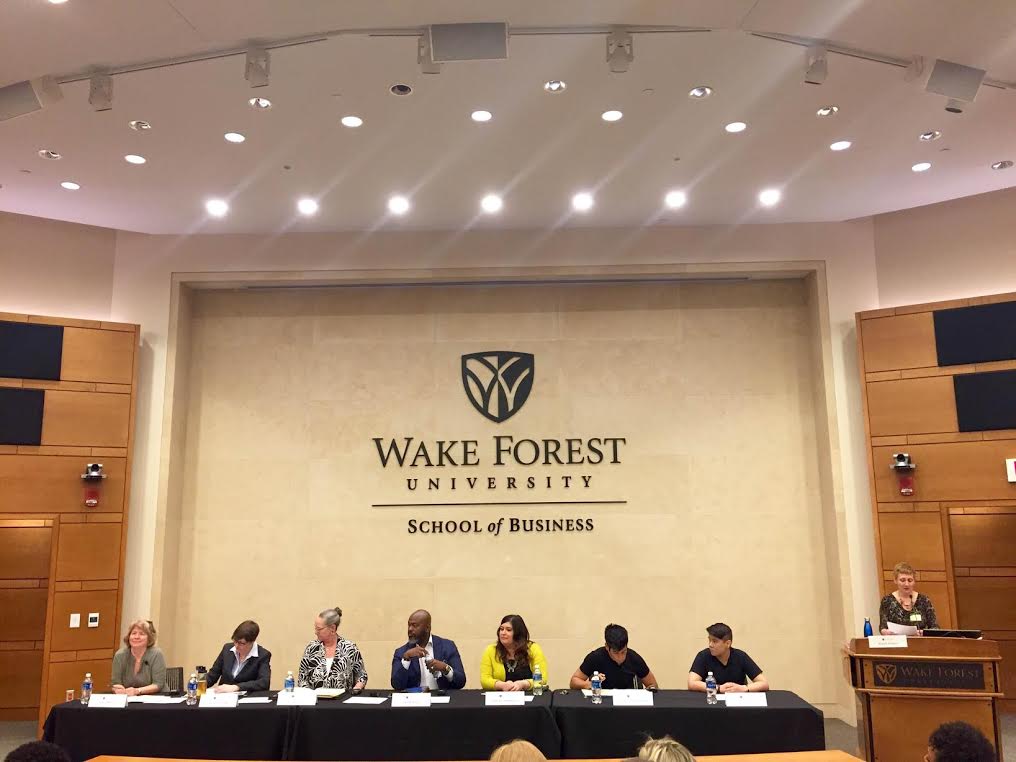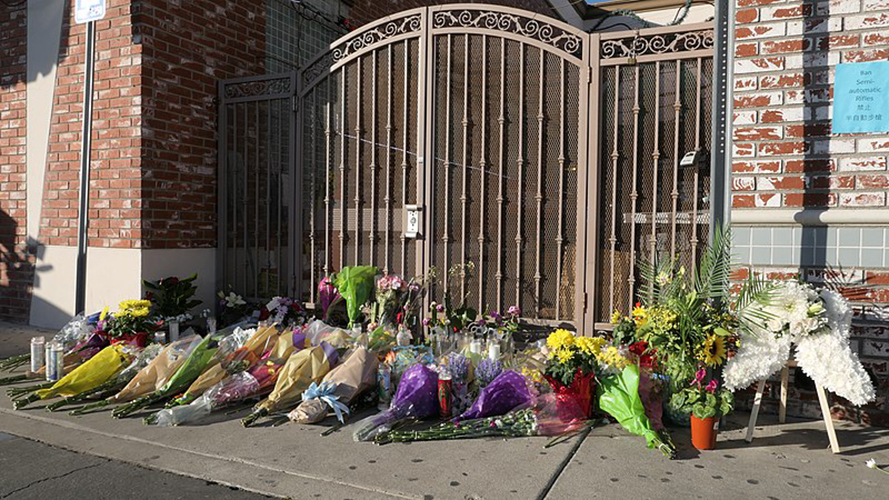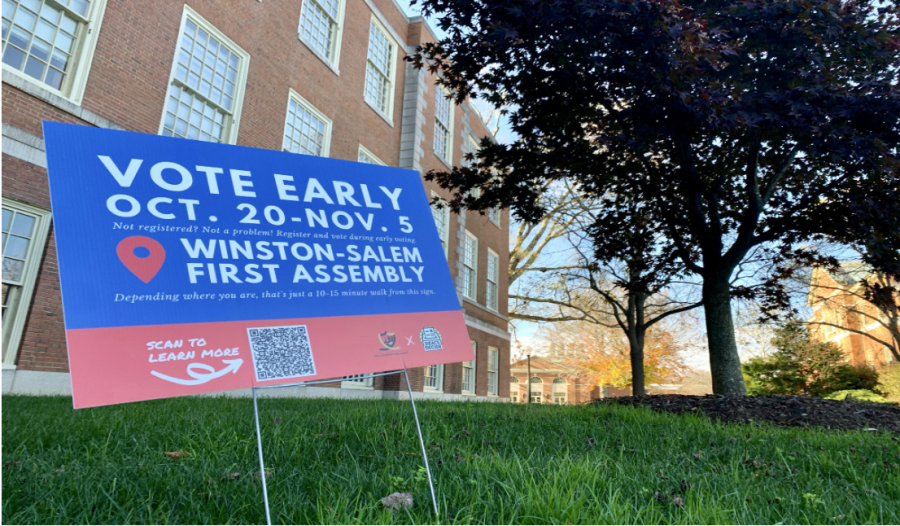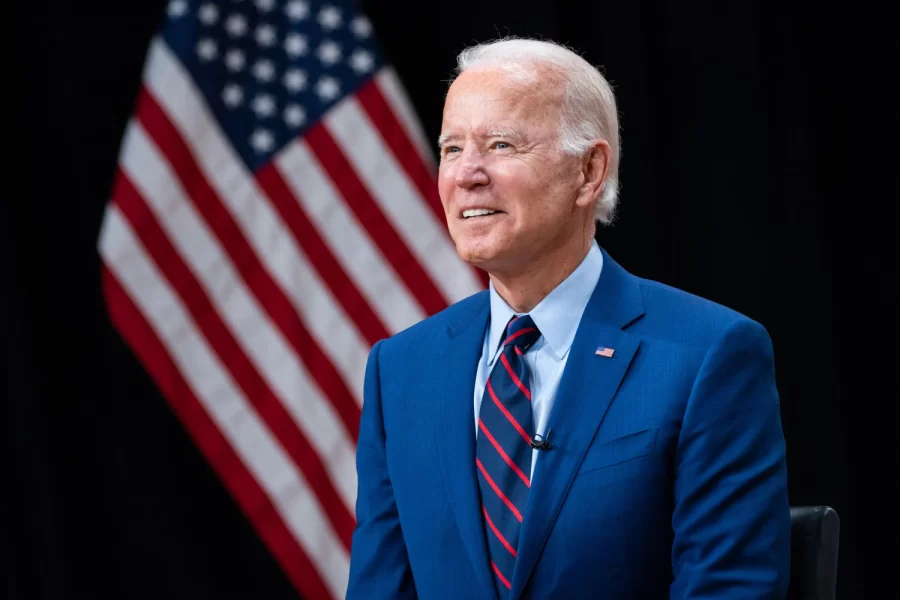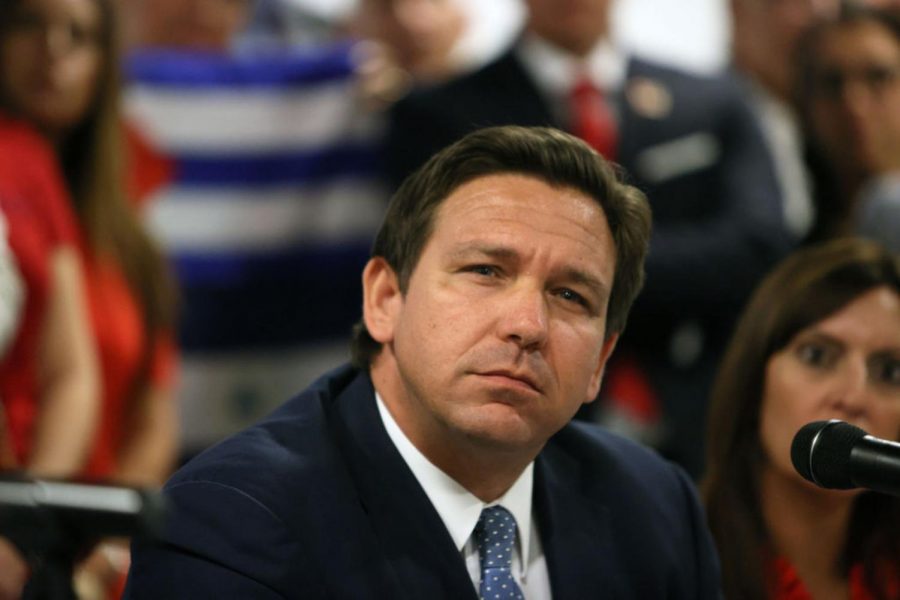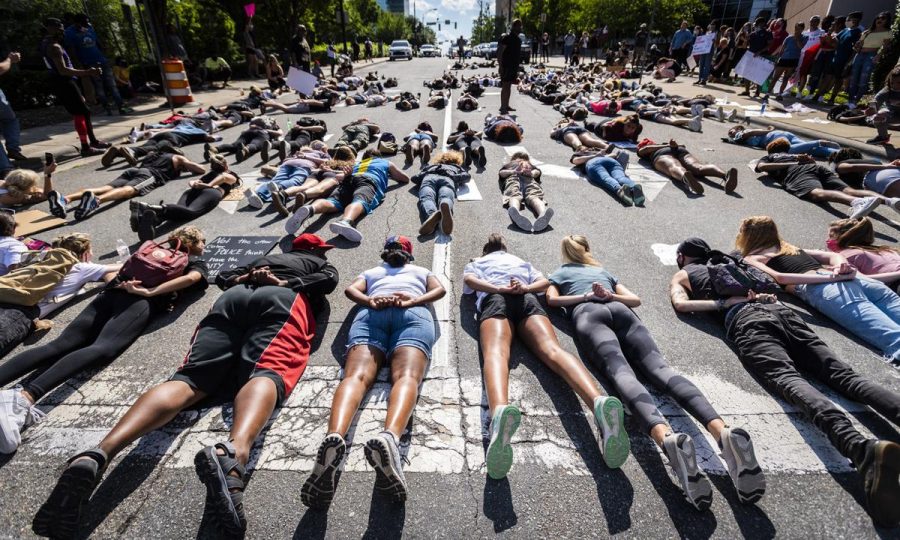At a panel discussing the recent legislation regarding transgender rights in North Carolina, eight speakers were posed the simple question, “Who agrees with House Bill 2?”
The answer was an overwhelming silence, complimented with nervous looks around the room, and panel members awkwardly anticipating the silence to be broken.
The cause of the tension is the recent law signed by Governor Pat McCrory, requiring that all state entities provide single-sex bathrooms based on biological sex. This overides local governments’ existing legislation.
Critics have deemed HB2 as one of the most discriminatory laws for the LGBTQ community to ever pass through a state legislature, while those in favor argue it keeps women safe from males in their bathroom.
The discussion panel titled “Beyond Bathrooms” was made up of Wake Forest professors, student activists and faculty members who brought unique knowledge to discuss, speaking in opposition of HB2.
Tanya Jachimiak, the first full-time Title IX coordinator for Wake Forest, was the second panelist to speak. Her knowledge focuses on the intersection between Title IX and HB2.
“HB2 actually would not apply to Wake Forest regarding bathroom and discrimination provisions because we do not fall in the executive branch,” Jachimiak said.
The law only directly applies to public institutions, which does not include Wake Forest, a private university. However, the negative implications of the law still reach the community in a very explicit way.
Dani Benitez, a student activist and a speaker on the panel, is a member of the transgender community who sees the direct impact on the larger population beyond Wake Forest.
“Of all the trans-youth in North Carolina, many of them are thinking about suicide just hearing that their bodies are wrong or are something to be disgusted about,” Benitez said. “Forty-one percent of transgender people attempt suicide [during their lifetime.]”
City councils in large cities such as Charlotte and Durham have already passed resolutions opposing the bill. Such methods begin the larger movement toward statewide rejection.
Marianne Magiuka, another member of the panel, is the director of democratic engagement and justice for the Pro Humanitate Institute. Her work focuses on fulfilling civic duty and getting involved in the democratic process to truly incite change in the community.
“I think more long term, it goes beyond just voting,” she said. “I was really disheartened to see that many of the representatives supporting HB2 are running unopposed. I think there’s a question that goes beyond voting that really requires people to run for office and support campaigns they believe in.”
However, activist mobilization through voting is not the only solution posed when discussing opposition to HB2.
“If there is a right at state, if people aren’t being treated the right way under a law, the court has ruled it’s not rational to target this group,” said Katy Harriger, a professor in the department of politics and international affairs who specializes in constitutional law and democratic engagement. “The question is not whether the majority wants it, the question is if there is a constitutional right to support it.”
The discussion on opposing HB2 centers around either enacting legal change or actively mobilizing and becoming involved. Students at Wake Forest share similar opinions opposing the bill.
“I’m gay, first of all, and my opinion on HB2 before the panel was that it is absolutely horrendous,” said newly elected student body president, Jordan Monaghan. “I think there are a lot of elements of HB2 that go beyond the exclusively LGBTQ community that are important to know about.”
The element he describes is the new statewide anti-discrimination policy based on “race, religion, color, origin, age, biological sex or handicap,” according to the law. This anti-discrimination policy explicitly excludes protections based on sexual orientation or gender identity.
Another student, freshman Erica Jordan, embraces the idea of activist mobilization as she went to the Winston-Salem city council to incite change.
“I thought this was a good way to get more clarity on the bill,” Monaghan said. “In the media people focus on the bathroom aspect of it, but it can be applied to other people.”
Although the entire panel and audience clearly opposed HB2 and no voices were heard in favor of the legislation, the panel was still a space for discussion and activism. Richard Caban-Cubero, another student activist and an assistant in the LGBTQ center, found hope in the panel.
“This conversation is fruitful because we are reminding everyone about the humanity of transgender people, because we want to protect each other and those people whose humanity is being directly attacked,” he said.

